The Hidden Connection: Exploring the Link Between Vacuum Leaks and Engine Knock
Engine knock can be a frustrating and concerning issue for drivers, and it’s often difficult to pinpoint the cause. However, one possible cause of engine knock that is often overlooked is vacuum leaks. Vacuum leaks occur when air enters the engine through a hole or crack in the vacuum system, causing the air/fuel mixture to become imbalanced and leading to engine knock. In this post, we will explore the hidden connection between vacuum leaks and engine knock, including how to identify and repair vacuum leaks, the symptoms of engine knock, and the potential long-term effects if left untreated. By understanding this link, drivers can take proactive steps to prevent engine knock and keep their vehicles running smoothly.
1. Introduction: Understanding the importance of engine performance and the role of vacuum leaks and engine knock
Engine performance is a crucial aspect of any vehicle, as it directly affects its power, efficiency, and overall driving experience. One common issue that can significantly impact engine performance is the presence of vacuum leaks, which are often linked to the occurrence of engine knock.
Before delving into the connection between vacuum leaks and engine knock, it is essential to understand the fundamentals. A vacuum leak occurs when air enters the engine through an unintended pathway. This unwanted air disrupts the delicate balance between air and fuel mixture, ultimately affecting the combustion process.
Engine knock, on the other hand, refers to the knocking or pinging sound that occurs within the engine when the air-fuel mixture ignites prematurely or unevenly. This phenomenon can cause excessive vibrations, reduced power, and even potential damage to engine components over time.
Now, let’s explore the hidden connection between vacuum leaks and engine knock. Vacuum leaks can disrupt the proper functioning of the engine’s intake system, altering the air-fuel ratio and creating a lean fuel mixture. This lean mixture can lead to a phenomenon known as pre-ignition, where the air-fuel mixture ignites prematurely due to high temperatures or pressure within the combustion chamber.
Pre-ignition, in turn, can cause engine knock. The premature ignition of the air-fuel mixture creates multiple flame fronts that collide, resulting in the characteristic knocking sound. Additionally, the increased pressure and temperature generated by pre-ignition can lead to increased wear and tear on engine components, potentially leading to long-term damage if not addressed promptly.
Identifying and rectifying vacuum leaks is crucial to prevent engine knock and maintain optimal engine performance. Common signs of vacuum leaks include rough idling, decreased fuel efficiency, and reduced acceleration. By addressing these leaks, whether through inspecting and replacing damaged hoses, gaskets, or other components, you can restore the proper air-fuel mixture and minimize the risk of engine knock.
In conclusion, understanding the relationship between vacuum leaks and engine knock is essential for anyone seeking to maintain their vehicle’s performance and longevity. By recognizing the impact of vacuum leaks on the air-fuel mixture and subsequent combustion process, drivers can take proactive measures to identify and rectify these leaks, preventing engine knock and ensuring a smooth and efficient driving experience.
2. Explaining the basics: What are vacuum leaks and engine knock?
To understand the hidden connection between vacuum leaks and engine knock, it’s essential to grasp the basics of these two concepts.
Vacuum leaks occur when there is an unintended gap or hole in the vacuum system of a vehicle’s engine. This system relies on a controlled vacuum to regulate various functions, such as fuel delivery, emissions, and overall engine performance. When a leak occurs, it disrupts the balance of air and fuel mixture, leading to potential issues.
On the other hand, engine knock, also known as detonation, refers to the knocking or pinging sound that occurs within the engine cylinders. It is caused by the premature ignition of the air-fuel mixture, resulting in multiple flame fronts colliding with each other. Engine knock is not only a nuisance in terms of noise but can also lead to severe damage if left unaddressed.
Now, you might be wondering about the relationship between these two seemingly unrelated problems. The connection lies in the impact that vacuum leaks can have on the air-fuel mixture. When a vacuum leak occurs, it allows extra air to enter the engine, creating a leaner mixture than intended. This can cause the engine to run hotter, increasing the likelihood of engine knock.
Furthermore, vacuum leaks can also disrupt the sensors responsible for monitoring and adjusting the air-fuel ratio. This can result in improper fuel delivery, leading to further complications and potential engine knock.
In conclusion, vacuum leaks and engine knock are interconnected through their influence on the air-fuel mixture within the engine. Understanding this relationship is crucial for diagnosing and resolving these issues effectively.
3. The connection: How vacuum leaks can lead to engine knock
Understanding the connection between vacuum leaks and engine knock is crucial for any car enthusiast or mechanic. While they may seem like two separate issues, they are actually intricately linked and can have a significant impact on the performance and longevity of your vehicle’s engine.
To grasp this connection, it’s important to first understand what vacuum leaks and engine knock are. A vacuum leak occurs when there is an unintended gap or opening in the vacuum system of the engine, which disrupts the optimal air-fuel mixture required for combustion. On the other hand, engine knock, also known as detonation, is the knocking or pinging sound that occurs when the air-fuel mixture in the combustion chamber ignites prematurely or unevenly.
So, how do these two issues intersect? When a vacuum leak occurs, it disrupts the delicate balance of air and fuel entering the combustion chamber. This can lead to a lean mixture, meaning there is an insufficient amount of fuel present for proper combustion. When the air-fuel ratio becomes imbalanced, the engine compensates by advancing the ignition timing to maximize power output. However, this advancement can increase the likelihood of engine knock.
Additionally, vacuum leaks can also introduce excess air into the combustion chamber. This excess air can cause the fuel to burn at a higher temperature and pressure, increasing the likelihood of detonation. Furthermore, vacuum leaks can disrupt the intake manifold pressure, affecting the operation of various engine sensors that rely on accurate pressure readings. This, in turn, can lead to incorrect fuel delivery and timing, exacerbating the risk of engine knock.
It’s worth noting that the severity of engine knock resulting from vacuum leaks can vary. In some cases, it may be subtle and intermittent, while in others, it can be more pronounced and persistent. Regardless of the extent, engine knock should never be ignored as it can cause significant damage to vital engine components over time.
To mitigate the risks associated with vacuum leaks and engine knock, it is essential to regularly inspect and maintain your vehicle’s vacuum system. Conducting thorough checks for any signs of leaks, such as hissing sounds, fluctuating idle speed, or poor acceleration, can help identify and address potential issues promptly. Properly sealing vacuum leaks and ensuring the optimal functioning of the vacuum system will not only help maintain the air-fuel ratio but also reduce the likelihood of engine knock, ultimately enhancing the performance and longevity of your engine.
In conclusion, vacuum leaks and engine knock share a hidden connection that should not be underestimated. Understanding how these two issues are intertwined can empower car owners and mechanics to take proactive measures to prevent and address them. By maintaining a healthy vacuum system, you can ensure a proper air-fuel mixture, minimize the risks of engine knock, and enjoy a smoother and more efficient driving experience.
4. Symptoms and signs: Identifying vacuum leaks and engine knock in your vehicle
Identifying vacuum leaks and engine knock in your vehicle is crucial for maintaining the health and performance of your engine. These two issues may seem unrelated, but they are often interconnected, and understanding their symptoms can help you diagnose and address the underlying problems effectively.
One of the common signs of a vacuum leak is a hissing sound coming from the engine compartment. This sound indicates that there is a breach in the vacuum system, causing air to escape. Additionally, you may notice a decrease in engine performance, such as a loss of power or acceleration. The engine might also run rough or experience misfires. Another telltale sign is a fluctuating idle speed, where the engine RPMs rise and fall unexpectedly.
Engine knock, on the other hand, is characterized by a knocking or pinging noise that occurs during combustion. It is caused by the premature ignition of the air-fuel mixture within the engine cylinders. This can happen when the fuel burns unevenly or detonates too early, leading to a knocking sound. Engine knock is often more noticeable under heavy load or during acceleration.
Interestingly, vacuum leaks can contribute to engine knock. When there is an uncontrolled flow of air into the engine due to a vacuum leak, the air-fuel mixture becomes leaner than intended. This lean mixture is more prone to detonation, resulting in engine knock. Therefore, if you suspect a vacuum leak in your vehicle, it is crucial to address it promptly to prevent further damage and potential engine knock.
To identify vacuum leaks, you can perform a visual inspection of the vacuum hoses and connections, looking for any cracks, loose fittings, or disconnected hoses. Another method is to use a smoke machine, which introduces smoke into the vacuum system, making it easier to spot leaks as the smoke escapes through any openings.
Engine knock can be detected by its distinct knocking sound, especially when the engine is under load. It is important to note that engine knock should not be confused with other noises, such as valve noise or belt squealing. If you suspect engine knock, it is advisable to consult a professional mechanic who can diagnose the issue accurately.
In conclusion, understanding the symptoms and signs of vacuum leaks and engine knock is crucial for maintaining the health of your vehicle’s engine. By promptly addressing these issues, you can prevent further damage and ensure smooth and efficient performance on the road.
5. Causes of vacuum leaks: Common reasons behind vacuum leaks
Vacuum leaks can be a frustrating issue for car owners, especially when they are accompanied by the ominous sound of engine knock. But what exactly causes these elusive leaks? Let’s explore some common reasons behind vacuum leaks and how they can lead to engine knock.
1. Worn or damaged vacuum hoses: Over time, the rubber hoses that connect various components of the vacuum system can deteriorate or develop cracks. This can result in air leaks, disrupting the proper functioning of the system and causing a vacuum leak.
2. Loose or faulty intake manifold gaskets: The intake manifold gaskets play a crucial role in sealing the connection between the intake manifold and the engine block. If these gaskets become loose or damaged, they can create gaps or openings, allowing air to enter the system where it shouldn’t. This can lead to a vacuum leak and potentially contribute to engine knock.
3. Faulty intake manifold or throttle body seals: Similar to the intake manifold gaskets, the seals around the intake manifold or throttle body can degrade over time. When these seals fail, they can create gaps that disrupt the vacuum system’s integrity, resulting in a vacuum leak.
4. Cracked or damaged vacuum accessories: Various accessories, such as the brake booster, PCV valve, or EGR valve, rely on vacuum pressure to function correctly. If any of these accessories develop cracks or damage, they can introduce unwanted air into the system, causing a vacuum leak and potentially triggering engine knock.
5. Loose or disconnected vacuum hoses or fittings: Sometimes, a simple oversight can be the source of a vacuum leak. If a vacuum hose is not securely attached or a fitting is loose, it can result in air escaping from the system, leading to a vacuum leak.
Identifying and addressing the underlying causes of vacuum leaks is crucial to prevent engine knock and ensure optimal engine performance. Regular inspection and maintenance of the vacuum system can help detect and resolve these issues promptly, allowing your engine to run smoothly and efficiently.
6. Effects of engine knock: Understanding the impact on engine performance and longevity
Engine knock, also known as detonation, is a phenomenon that can have detrimental effects on both the performance and longevity of an engine. Understanding these effects is crucial in order to address and prevent engine knock effectively.
Firstly, engine knock can significantly impact engine performance. When knock occurs, it creates an unwanted and uncontrolled combustion process within the engine cylinders. This causes a rapid increase in pressure and temperature, leading to a knocking or pinging sound. As a result, the engine’s power output is reduced, leading to decreased acceleration and overall performance.
Moreover, prolonged engine knock can cause severe damage to various engine components. The excessive pressure and temperature generated during knock can cause stress and strain on the pistons, connecting rods, and crankshaft. Over time, this can lead to premature wear and failure of these critical engine parts.
Additionally, engine knock can also lead to increased fuel consumption. When knock occurs, the combustion process becomes less efficient, resulting in incomplete burning of the fuel-air mixture. This inefficiency leads to wasted fuel and increased fuel consumption, ultimately impacting the vehicle’s fuel economy.
Furthermore, the continuous occurrence of engine knock can result in increased engine temperatures. The excessive heat generated during knock can lead to overheating and potential damage to engine cooling systems. This can further compromise the engine’s longevity and overall reliability.
In summary, engine knock not only affects the performance of an engine by reducing power output and fuel efficiency but also poses a significant risk to the engine’s longevity. It is crucial for vehicle owners and enthusiasts to understand these effects and take necessary measures to address and prevent engine knock, such as identifying and repairing vacuum leaks, using high-quality fuel, and ensuring proper engine maintenance and tuning. By doing so, one can ensure optimal engine performance and extend the lifespan of their vehicle.
7. Diagnosing vacuum leaks: Methods and tools to identify and locate vacuum leaks
When it comes to diagnosing vacuum leaks in your engine, there are several methods and tools that can help you identify and locate them effectively. Vacuum leaks can cause a variety of issues, including engine knock, reduced performance, and increased fuel consumption. Therefore, it is crucial to address them promptly to maintain the optimal functioning of your engine.
One common method for detecting vacuum leaks is the “smoke test.” This involves introducing smoke into the intake manifold or vacuum system and looking for any signs of smoke escaping from potential leak points. Smoke machines or specialized smoke pencils can be used for this purpose, allowing you to visually identify the location of the leak.
Another method involves using a handheld vacuum gauge. By connecting the gauge to various vacuum hoses and fittings, you can measure the vacuum pressure and identify any abnormal readings that may indicate a leak. Keep in mind that this method may require some technical expertise and knowledge of your engine’s specifications.
Furthermore, using a can of carburetor cleaner or a similar aerosol product can help locate vacuum leaks. With the engine running, carefully spray the cleaner around suspected areas of the intake manifold, vacuum hoses, and fittings. If there is a leak, the engine RPM may change, indicating that the cleaner is being sucked into the system through the leak.
Additionally, a propane torch can be utilized to detect vacuum leaks. By connecting a hose to the torch and turning on the gas, you can slowly move the flame near potential leak points. If there is a vacuum leak, the engine RPM may increase as the propane is drawn into the system.
It is worth noting that diagnosing vacuum leaks can sometimes be challenging, especially if they are small or located in hard-to-reach areas. In such cases, seeking professional assistance from a certified mechanic or automotive technician can save you time and ensure accurate diagnosis and repair.
Remember, addressing vacuum leaks promptly is crucial to prevent further damage and maintain the overall performance and efficiency of your engine. By utilizing these methods and tools, you can effectively diagnose and locate vacuum leaks, giving you the opportunity to resolve them and eliminate any potential engine knock or related issues.
8. Prevention and repair: Steps to prevent vacuum leaks and resolve engine knock
Prevention and repair are crucial when it comes to vacuum leaks and engine knock. Taking proactive steps to prevent these issues can save you from costly repairs down the line and ensure the smooth functioning of your engine.
First and foremost, regular maintenance is key. Performing routine inspections of your vacuum lines and connections can help identify any potential leaks early on. Check for cracks, loose connections, or any signs of wear and tear. Replace any damaged components promptly to prevent leaks from occurring.
Another preventive measure is to keep your engine clean. Accumulated dirt, debris, or oil can affect the integrity of the vacuum lines, leading to leaks. Regularly cleaning the engine and its surrounding areas can help maintain the proper functionality of the vacuum system.
Additionally, ensuring proper installation and tightness of vacuum system components is crucial. Double-check all connections and fittings to ensure they are securely fastened. Loose connections can result in vacuum leaks, which can ultimately lead to engine knock.
In the event that you do experience a vacuum leak and subsequent engine knock, timely repair is essential. First, identify the source of the leak by using techniques such as smoke testing or listening for hissing sounds. Once the source is identified, replace the affected vacuum line or component as necessary. It is important to address the issue promptly to prevent further damage to the engine.
Furthermore, regularly monitoring your engine’s performance can help detect early signs of engine knock. Unusual noises, decreased power, or reduced fuel efficiency may indicate the presence of engine knock. If these symptoms arise, consult with a professional mechanic who can diagnose the issue and provide appropriate repairs.
By taking preventive measures and promptly addressing any vacuum leaks or engine knock, you can ensure the longevity and optimal performance of your engine. Regular maintenance, thorough inspections, and timely repairs are the key to preventing and resolving these issues effectively.
9. Professional help: When to consult a mechanic for assistance
While it’s always great to have some DIY skills when it comes to fixing your car, there are certain instances where it’s best to consult a professional mechanic for assistance. When it comes to vacuum leaks and engine knock, it’s crucial to know when to seek expert help.
If you’ve tried troubleshooting the issue yourself and are still unable to locate the vacuum leak or resolve the engine knock, it’s time to reach out to a mechanic. They have the knowledge, experience, and specialized tools to diagnose and repair complex engine problems.
One key indicator that you should consult a mechanic is if the issue persists or worsens despite your attempts to fix it. A vacuum leak or engine knock can be caused by various factors, and a professional will be able to accurately identify and address the root cause of the problem.
Additionally, if you’re unsure about the correct procedures or lack the necessary equipment to fix the issue, it’s best to leave it to the experts. Handling engine components without proper knowledge can lead to further damage or even personal injury.
Moreover, a mechanic can provide valuable insights and advice on preventive maintenance to avoid future vacuum leaks or engine knock. They have a deep understanding of automotive systems and can guide you on regular maintenance routines and potential problem areas to keep your engine running smoothly.
Remember, the safety and optimal performance of your vehicle are paramount. Investing in professional assistance when needed will not only save you time and frustration but also ensure that the issue is properly resolved, preventing further damage and potentially costly repairs down the line.
10. Conclusion: The importance of regular maintenance and addressing vacuum leaks to prevent engine knock and ensure optimal engine performance.
In conclusion, understanding the hidden connection between vacuum leaks and engine knock is crucial for maintaining optimal engine performance. As we have learned throughout this article, vacuum leaks can cause a disruption in the air-fuel mixture, leading to an imbalance in the combustion process and ultimately resulting in engine knock.
Regular maintenance is key in preventing vacuum leaks from occurring or addressing them promptly if they do arise. By conducting routine inspections and addressing any signs of vacuum leaks, such as hissing sounds or decreased engine performance, you can prevent the detrimental effects of engine knock.
Furthermore, addressing vacuum leaks promptly not only prevents engine knock but also ensures optimal engine performance. When the air-fuel mixture is properly balanced, the engine can operate efficiently, resulting in better fuel economy, smoother acceleration, and overall improved driving experience.
Remember, prevention is always better than cure. Taking proactive measures to maintain your vehicle and address any potential vacuum leaks will save you from costly repairs down the line. Regularly check and replace worn-out vacuum hoses, seals, and gaskets, as these are common culprits of vacuum leaks.
In conclusion, prioritizing regular maintenance and addressing vacuum leaks promptly is essential for preventing engine knock and ensuring optimal engine performance. By doing so, you can prolong the lifespan of your engine and enjoy a smoother and more efficient driving experience.

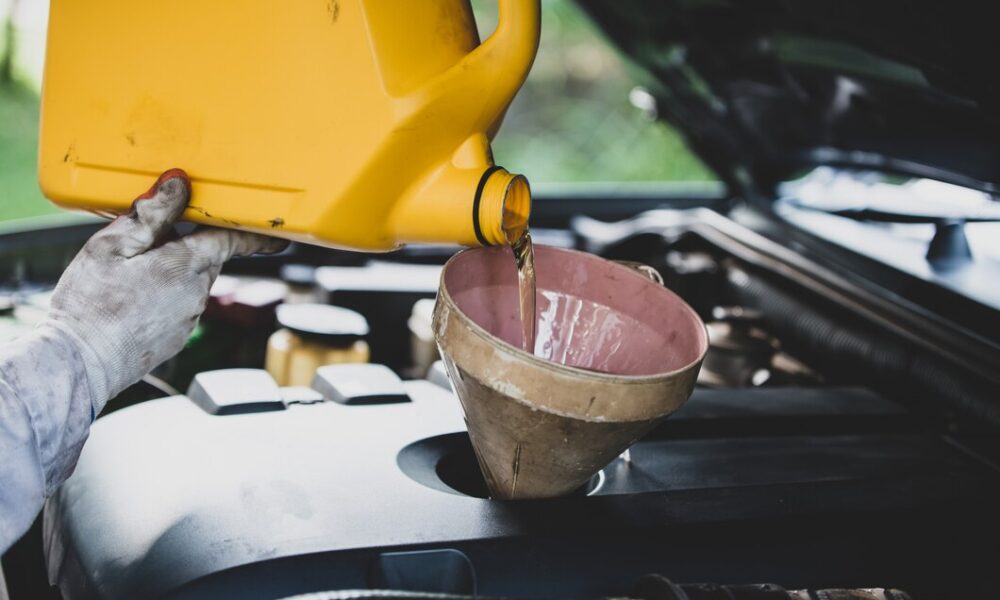

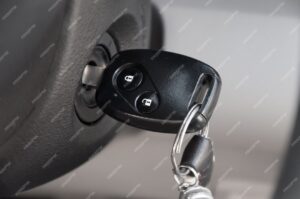


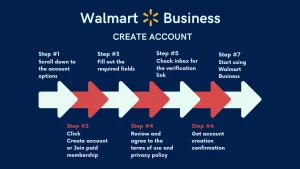


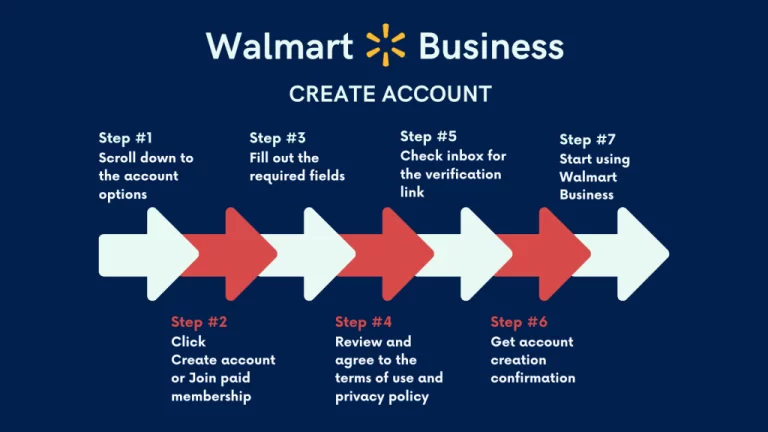
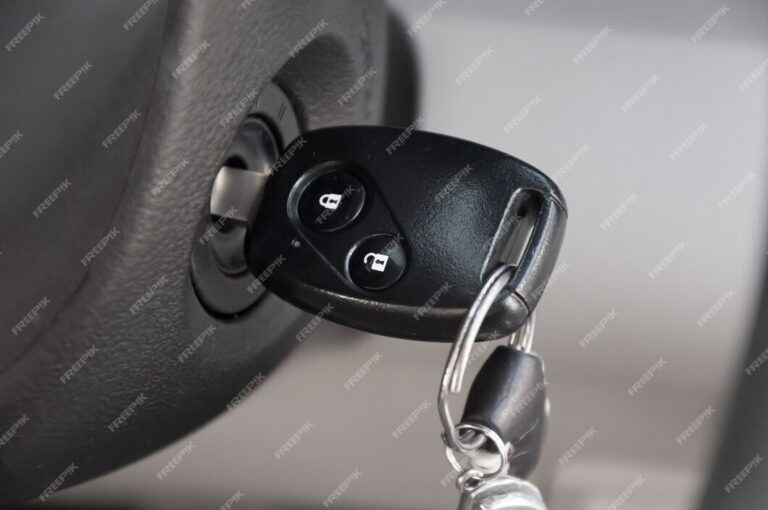



+ There are no comments
Add yours